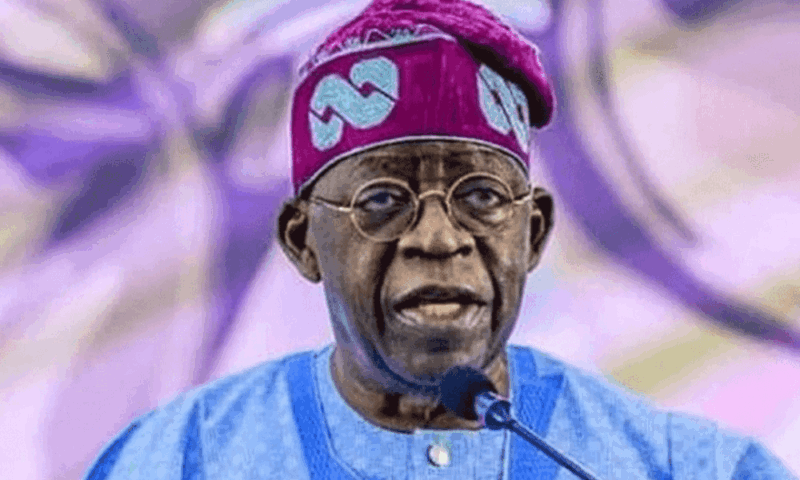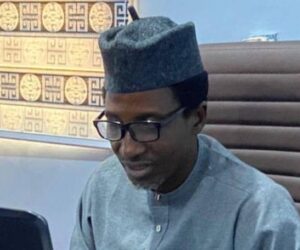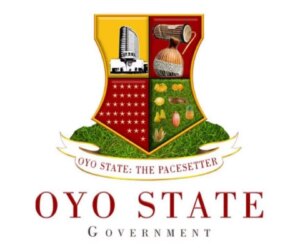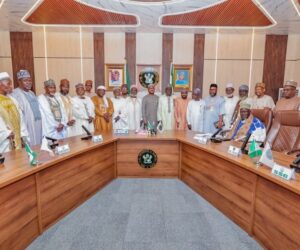…Charges War College graduates with deployment of knowledge, skills
President Bola Tinubu has insisted on strengthening indigenous manufacturing of military hardware, describing it as crucial to enhancing Nigeria’s internal security and development.
Stanley Nkwocha, Senior Special Assistant to the President on Media and Communications, Office of the Vice President, in a statement, said the President, while speaking at the graduation ceremony of Course 33 of the National Defence College, in Abuja, described the College as a vivid representation of his administration’s commitment to building human capital in areas critical to our national survival.
The President, who was represented by his deputy, Vice President Kashim Shettima, however, applauded the culture of excellence in research at the National Defence College (NDC), citing the Presidential Treaties on Harnessing Indigenous Manufacturing for Enhanced National Security and Development: Strategic Options for Nigeria by 2040, as an affirmation of the strength of such a tradition in the country.
There are indications that Nigeria currently spends roughly $2 billion annually on military hardware imports from countries like the US, Russia, and China, amongst others.
The country’s overall defence budget is significantly higher, with N4.07 trillion allocated for capital expenditure in the 2025 budget alone, out of a total budgetary allocation of N6.57 trillion.
Nigeria has been spending heavily on military hardware as part of the total budget aimed at improving the country’s defence capabilities, with Nigeria also seeking to reduce its reliance on imports by developing local production capabilities.
The country has been making strong efforts to reduce its reliance on military hardware, seeking a local substitute.
The President said, “I must also commend the tradition of research excellence in this College.
Read also: IOM, Nigerian military vow stronger partnership in tackling insecurity, displacement
“The Presidential Treaties on Harnessing Indigenous Manufacturing for Enhanced National Security and Development: Strategic Options for Nigeria by 2040 is a clear demonstration of this strength.
“I have directed that relevant stakeholders study your recommendations and harvest the strategies you proposed, because strengthening indigenous manufacturing is indispensable to our nation’s security and development,” he stated.
The Nigerian leader expressed delight at the theme for the College’s Course 33, “Strengthening Institutions for National Security and Development in Nigeria,” pointing out that the foundation of every successful society is strong and resilient institutions.
He assured that his administration has since made strong institutions a national priority, adding that “They uphold the rule of law, safeguard citizens’ rights, promote accountability, and deliver essential services. In national security, they are the framework for managing conflict, countering threats, and building resilience against instability.
“In development, they ensure sound governance, effective planning, and the delivery of policies that serve the common good. This is why this administration has made institutional strengthening a national priority, and I trust that the knowledge you have acquired here will be deployed to fortify the institutions of Nigeria and of your respective nations.”
The President expressed firm belief that “without strong institutions there can be no lasting democracy,” stating that in pursuit of this conviction, his administration has taken bold steps to reposition the nation’s “economy for growth and shared prosperity.
“Today, there is renewed confidence in our economy, reflected in the nation’s rising business outlook. Today, even the stock market has grown by over 48% year on year, the best performance in almost three decades.
“While this reflects investor faith in our reforms, I acknowledge that we must continue to tackle inflation and food insecurity to ensure that this growth translates into real prosperity for every Nigerian,” he declared.
The President also restated his administration’s resolve to complete construction at the permanent site of the National Defence College in Piwoyi, saying that while it is a matter close to the heart of the College, he had been briefed on the state of infrastructure at the site.
Read also: Manufacturers urged to embrace local machine building to drive industrialisation
“While progress has been made, much remains to be done. I assure you that this administration is committed to completing the permanent site, to ensure that the College continues to deliver strategic training not only for Nigeria but also for allied nations. When fully equipped, this College can, and should, evolve into a Defence Postgraduate University.
“I have therefore directed the Commandant to work closely with the Honourable Minister of Defence to develop a clear strategy to upgrade the facilities, while government explores further interventions to enhance the infrastructure,” he assured.
President Tinubu implored the Course 33 graduands to join hands in delivering his administration’s renewed hope to Nigerians, just as he recalled that his pledge to the people is “to provide effective and creative leadership, and I called on them to be partners in the task of birthing the new Nigeria we all dream of.
“Graduates of Course 33, you step out today into a world more volatile, uncertain, complex, and ambiguous than when you began your course last year. Global economic headwinds, the war in Ukraine, the disruptive force of emerging technologies, the threats in cyberspace, and the unsettling resurgence of unconstitutional changes of government in our region form the backdrop of your service.
“But you have been prepared for this moment. You have been trained to think and act strategically. You have been equipped to lead with vision and courage,” he added.
He further commended the Commandant, the management team, and the Faculty of the College for grooming the Course 33 graduands for the “Armed Forces, for Ministries, Departments and Agencies, and for the friendly nations represented,” in the Course.
Earlier, J.O.O. Okosu, a Rear Admiral and Commandant of the National Defence College, commanded the administration’s solid support for the military institution.
He expressed confidence in the graduands’ abilities to deliver, stressing that the training programme is aimed, among other things, at tackling several pertinent security challenges, including banditry and oil theft in the Niger Delta region.
On his part, Kevin Ukandu, a Major General and Deputy Commandant of NDC, explained that knowledge and skills were imparted to the participants in several areas, including defence management, strategy formulation, command, and geopolitics.
According to him, the training was designed to prepare them to undertake high-level policy, command, and staff functions in single and joint service headquarters, as well as civil appointments at national and international levels.
The Course 33 graduates are drawn from the Nigerian Army, Nigerian Navy, Nigeria Police Force, and other institutions both within and outside Nigeria.








